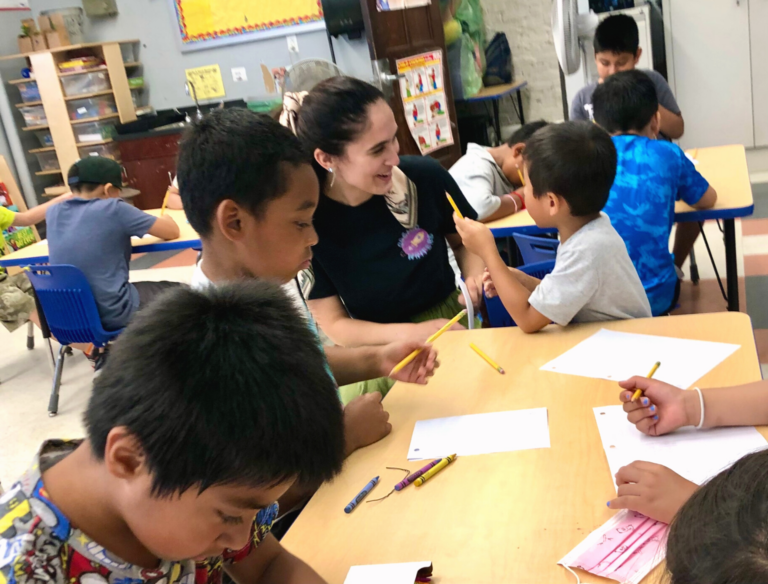2025 Finalist
Cosmic Writers

Reimagining Writing Education Through Creativity and Critical Thinking

The Story of 2025 Finalist Cosmic Writers
Reimagining Writing Education Through Creativity and Critical Thinking
When the pandemic shut down in-person learning in 2020, University of Pennsylvania undergraduate Rowana Miller saw an opportunity to bring something joyful and intellectually engaging to children stuck at home. With a small grant from Penn’s Kelly Writers House, where she worked as a student employee, she launched a virtual creative writing camp. Within 24 hours, 150 families had signed up.
As Miller began speaking with parents and teachers, she realized that for many of these children, it was their first access to creative writing instruction. Outside of occasional lessons in classrooms, a handful of brick-and-mortar nonprofit hubs in major cities, or costly private tutors, most students simply weren’t getting the chance to learn creative writing at all.
“That was when I started thinking, this needs to be more than one virtual camp a year,” Miller recalls. “It needs to be an independent organization dedicated to serving the two-thirds of American children — and beyond — who aren’t getting access to creative writing education.”
What began as an arts-focused enrichment project has since evolved into Cosmic Writers, a nonprofit that uses creative writing as a powerful tool to teach core literacy skills. “A lot of the same skills you need to write analytical and persuasive pieces, you also need to tell stories,” says Miller. “But if you learn them through telling stories, they’re a lot more engaging.”
One of the organization’s flagship offerings is the Monster Building Handbook, an activity book that guides elementary and middle school students through creating their own monster characters and adventures, gradually reducing scaffolding until they’re writing full stories on their own. The book is designed not only to teach narrative structure, but also to build empathy by encouraging students to write from the monster’s perspective. “Creative writing can teach kids how to be people,” Miller says. “It’s research-backed that it builds empathy, communication skills, and literacy all at once.”
In addition to direct-service workshops, Cosmic Writers is expanding its reach through products like activity books and an upcoming edtech platform, shifting toward a model where earned revenue from these offerings can sustainably fund the mission. “We’ve found that even when schools don’t have a budget for direct programming, they often have the budget for curricular materials,” Miller explains.
Miller sees Cosmic Writers as part of a broader cultural shift away from rigid, output-focused writing instruction toward approaches that develop critical, analytical, and creative thinking — a shift she believes is even more urgent in the age of generative AI. “Kids need writing education that teaches them how to think,” she says. “Integrating creative writing into the core curriculum is how we get there.”
While changing entrenched education systems is no small challenge, Miller has been encouraged by how widely the mission resonates. “I thought I’d have to do a lot more convincing,” she admits. “But people are excited about this. They’re ready for a change in how we teach core reading and writing skills.”